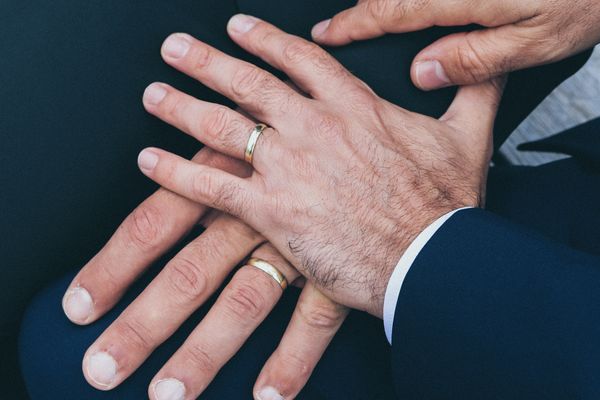In the U.S., there are four million people who identify as bisexual, which equates to 40 percent of the overall LGBT population. However, despite their strong presence in the LGBT community, bisexuals face discrimination that is solely unique to their sexual identity. These different types of discrimination that bisexual individuals deal with has been coined “binegativity.” There are three major aspects that contribute to binegativity. These components are general dual-sourced hostility towards bisexuals, the myth that bisexuality is an illegitimate and unstable sexual identity, and that bisexuals are sexually irresponsible.
General dual-sourced hostility towards bisexuals is one of the biggest aspects of binegativity and is the most unique issue for this particular sexual orientation. When someone comes out as gay or lesbian, they will most likely face some variation of homonegativity from the heterosexual community. Any type of discrimination this individual faces is coming from only one source so, appropriately, this is identified as single-sourced homonegativity. However, there is potential for bisexual identified people to face discrimination from both the heterosexual and lesbian/gay community, making binegativity dual-sourced.
The reason for binegativity from the lesbian and gay community is based off of two stereotypes about bisexuals. The first stereotype being that bisexuals do not engage in the fight for lesbian and gay equal rights, and that bisexuals identify as such (opposed to being lesbian or gay) to avoid experiencing homonegativity and maintain their heterosexual privilege.
In regards to binegativity from the heterosexual community, there are a lot more factors that feed into this issue. Along with there being more complicated aspects, most of the hostility from heterosexuals also coincides with another component of binegativity; that bisexuality is an illegitimate and unstable sexual identity.
A study, done by Megan R. Yost and Gene ́a D. Thomas of Springer Science conducted a number of different surveys to find the relevance of binegativity among heterosexuals. The two researchers were able to come away with three different conclusions; (1) Participants would express greater binegativity against male than female bisexuals; (2) Male participants would express greater binegativity than female participants; and, (3) Male participants would express greater binegativity against male bisexuals than against female bisexuals.
In essence, they were correct. While females were much more accepting of bisexuality, men expressed a much higher rate of binegativity. When asked of their opinions on male bisexuals, heterosexuals often confused sexual orientation with gender identity. The majority of heterosexual males in this survey believed that being bisexual was associated with not being masculine and being feminine. In addition, the majority of heterosexual males believed that bisexually identified men are “really gay”, which contributes to the stereotype of bisexuality not being a legitimate sexual identity.
Another contributing factor of binegativity is our society’s binary view of sexual orientation. We characteristically like to place sexual orientations upon people when we see them with another person. If someone saw a man with another man, then most people would assume he was gay. If someone saw a man with another woman, then most people would assume he is heterosexual. However, that man could very well be bisexual, but because there is no visible way to determine that without personally asking him. This causes bisexuality to become invisible to our society, further reinforcing the negative stereotypes of this sexual orientation
Lastly, the third major component of binegativity is the notion that bisexual people are sexually irresponsible and immature. There is a stereotype that bisexually identified individuals are responsible for bringing STI’s, HVI, and AIDS to both the heterosexual and lesbian communities. There is also a belief that bisexuals need the companionship of both male and female partners in order to feel sexually or emotionally complete. Because of this, people tend to believe that bisexuals are sexually promiscuous and are unable to commit to a monogamous relationship
It is clear that binegativity is very present in our society. Bisexual individuals experience various amounts of discrimination, some of which are unique specifically to bisexual individuals. These major components lead to overall health issues for bisexual individuals. Some of the major health implications include poor mental health, poor sexual identity development, feelings of invisibility, exclusion from the lesbian/gay community, and many more.





















